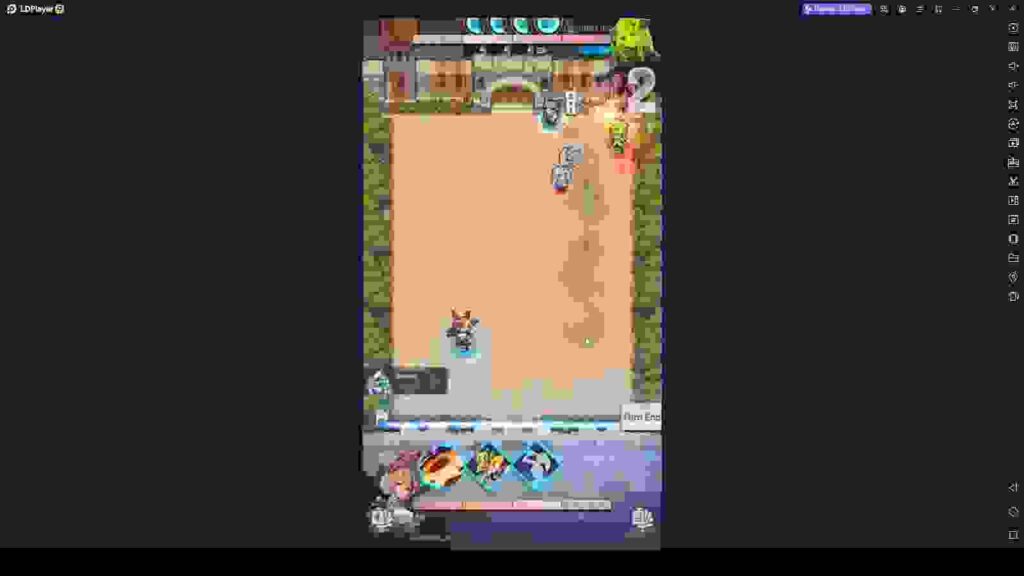Welcome to the thrilling world of FlyingCard, a fast-paced competitive card game that blends strategy, skill, and quick thinking. Whether you’re a seasoned card game veteran or a newcomer to the genre, this guide will help you navigate the basics, build competitive decks, and master key strategies to dominate your opponents. In this guide, we will explore essential tips, deck-building advice, and advanced tactics to ensure your success in every match.
Getting Started with Project: FlyingCard
FlyingCard is a strategic card game where players compete in real-time matches using a customized deck of cards. The objective is simple: outmaneuver your opponent and reduce their health points to zero. However, achieving this goal requires a deep understanding of your cards, careful planning, and the ability to adapt quickly during matches.
Key Mechanics of FlyingCard
- Turn-Based Play: Matches are played in turns, where each player uses cards to attack, defend, or gain resources. Mastering the flow of turns is crucial to outplaying your opponent.
- Card Types: Cards come in various types, including Attack, Defense, Buff, Debuff, and Resource cards. Knowing when and how to use each type can turn the tide of a match in your favor.
- Resource Management: Managing your energy or resources is essential, as each card requires a certain amount of resources to play. Efficient use of resources will maximize your strategic options.
Choosing Your Starter Deck: Building a Strong Foundation
When starting in FlyingCard, your initial deck choices will significantly impact your early matches. It’s important to build a balanced deck that can handle a variety of situations.
1. Understand the Deck Archetypes
FlyingCard features several deck archetypes, each with a unique playstyle. Here are some common archetypes to consider:
- Aggro Decks: Focus on dealing damage quickly with low-cost, high-impact cards. Ideal for players who like to be on the offensive.
- Control Decks: Focus on controlling the pace of the match by neutralizing threats and outlasting your opponent. Best suited for players who prefer a slower, more deliberate playstyle.
- Combo Decks: Utilize specific card synergies to create powerful combos that can overwhelm opponents in a single turn. Requires careful planning and timing.
2. Key Cards for Beginners
When building your starter deck, prioritize cards that are versatile and easy to use. Here are some essential cards that every beginner should consider:
- Quick Strike: A low-cost Attack card that deals moderate damage. Perfect for keeping up constant pressure.
- Shield Block: A basic Defense card that provides protection against enemy attacks. Useful in both Aggro and Control decks.
- Resource Surge: A card that grants additional resources, allowing you to play more powerful cards sooner.
- Power Boost: A Buff card that increases the damage of your next Attack card, ideal for setting up high-damage plays.
Essential Tips for Winning Matches
To become a competitive player in FlyingCard, it’s crucial to understand not just the mechanics but also the nuances of strategic play. Here are some essential tips to help you win more matches:
1. Manage Your Resources Wisely
Resource management is the backbone of FlyingCard. Efficient use of resources will allow you to execute powerful plays while minimizing downtime:
- Plan Your Turns Ahead: Always think one or two turns ahead. Use low-cost cards early on to set up for bigger plays later in the match.
- Balance Aggression and Defense: Don’t blow all your resources on aggressive plays without having a plan to defend against your opponent’s counterattacks.
- Save for Key Moments: Sometimes, it’s better to hold onto resources and cards for a decisive turn rather than using them as soon as possible.
2. Master Card Synergies and Combos
The real strength of a deck lies in its ability to use cards in synergy. Look for cards that work well together to create powerful combos:
- Example Combo: Use Power Boost followed by a high-damage Attack card to maximize your damage output in a single turn.
- Defensive Combos: Combine cards like Shield Block with Healing cards to create a nearly impenetrable defense when needed.
- Debuff Strategies: Use Debuff cards to weaken your opponent before launching a major offensive, ensuring your attacks do maximum damage.
3. Adapt Your Strategy to Opponents
No two matches are the same, and being able to adapt is key to winning in FlyingCard. Here are some ways to stay flexible:
- Read Your Opponent: Pay attention to the types of cards your opponent is playing. If they are using a lot of Attack cards, prioritize Defense and Healing.
- Switch Tactics Mid-Match: If your current strategy isn’t working, don’t be afraid to change tactics. Control decks, for instance, can shift to a more aggressive playstyle if the opportunity arises.
- Bluffing and Baiting: Use less important cards to bait your opponent into wasting their resources, then follow up with your strongest moves.
Advanced Strategies for Competitive Play
Once you’ve mastered the basics, it’s time to elevate your gameplay with advanced strategies that can outsmart even the toughest opponents.
1. Deck Refinement: Keep Evolving Your Strategy
As you collect more cards and gain experience, continually refine your deck to improve its performance:
- Identify Weak Points: After every match, analyze your performance. Did you run out of resources too quickly? Did your defense fall apart? Use these insights to tweak your deck.
- Keep It Balanced: Make sure your deck isn’t overloaded with high-cost cards. A good balance of low and high-cost cards ensures you always have something to play.
- Stay Updated on Meta Shifts: The game’s meta (most effective strategies) can change as new cards are released. Stay informed and adjust your deck to remain competitive.
2. Mastering the Tempo of the Game
Tempo refers to controlling the pace of the match. Mastering tempo allows you to dictate how the game unfolds:
- Aggressive Tempo: Put pressure on your opponent from the start, forcing them to play defensively and react to your moves.
- Defensive Tempo: Slow the game down, forcing your opponent to overextend and make mistakes. This is particularly effective against aggressive players.
- Tempo Shifts: Switch between aggressive and defensive plays to keep your opponent off balance and unable to predict your next move.
3. Psychological Play: Outsmarting Your Opponent
FlyingCard isn’t just about the cards you play; it’s also about how you play your opponent. Psychological play can give you an edge:
- Bluffing: Sometimes, holding back your best cards can make your opponent overconfident. Let them think they have the upper hand before making your big move.
- Mind Games: Use cards that disrupt your opponent’s strategy, forcing them to rethink their approach. Cards that discard your opponent’s hand or reduce their resources can be game-changers.
- Reading Patterns: Experienced players often fall into predictable patterns. If you can identify these, you can anticipate their moves and counter them effectively.
FAQs
Q: What is the best way to get new cards in FlyingCard?
A: New cards can be obtained through packs earned in matches, purchased with in-game currency, or as rewards from special events. Focus on completing daily and weekly challenges to earn more packs.
Q: How often should I update my deck?
A: Regularly review and update your deck, especially after acquiring new cards. Adjust your deck to counter the current meta and improve your matchups.
Q: What’s the best strategy for beginners?
A: Start with a balanced deck that includes a mix of Attack, Defense, and Resource cards. Focus on mastering the basics of resource management and card synergies before moving on to more complex strategies.
Final Thoughts
FlyingCard is a game of skill, strategy, and adaptability. With the right approach, even beginners can quickly rise through the ranks and compete at a high level. By understanding the basics, refining your deck, and mastering advanced strategies, you’ll be well-equipped to take on any challenge the game throws your way. Dive into your next match with confidence, keep learning from every win and loss, and let your cards soar to victory!




